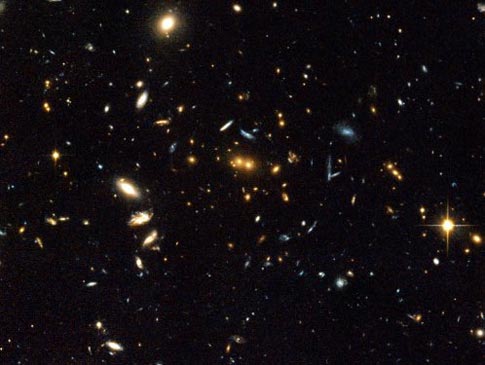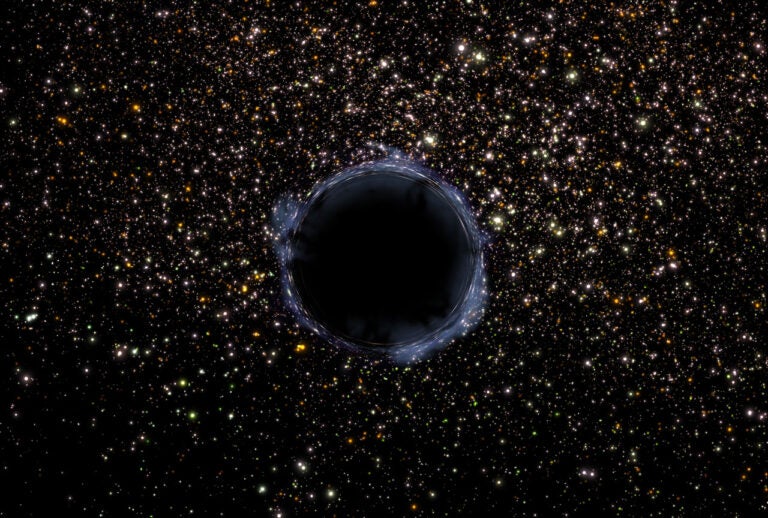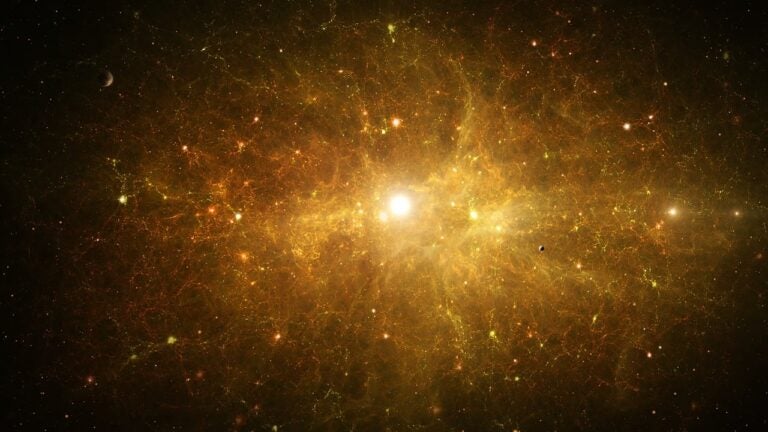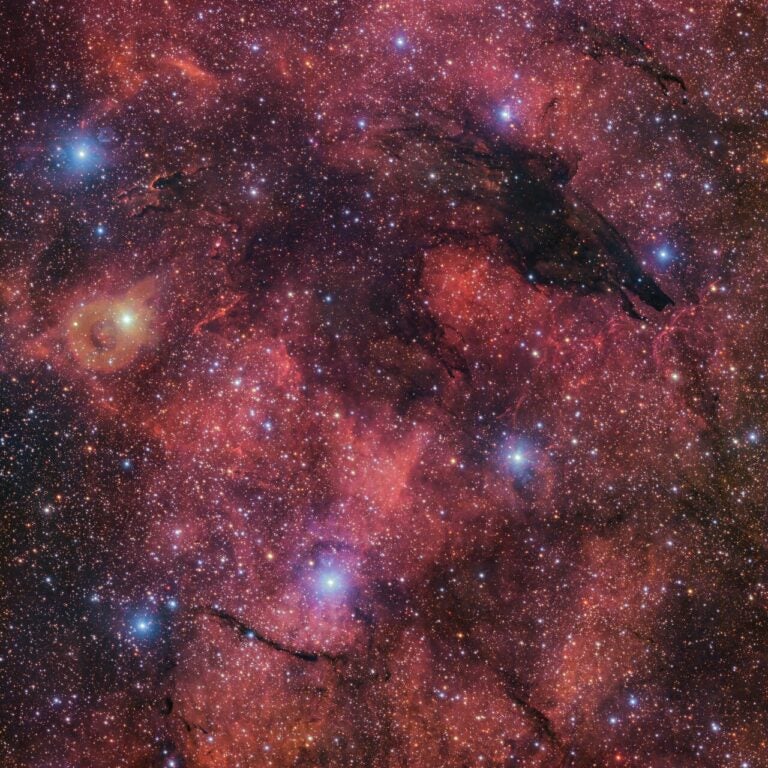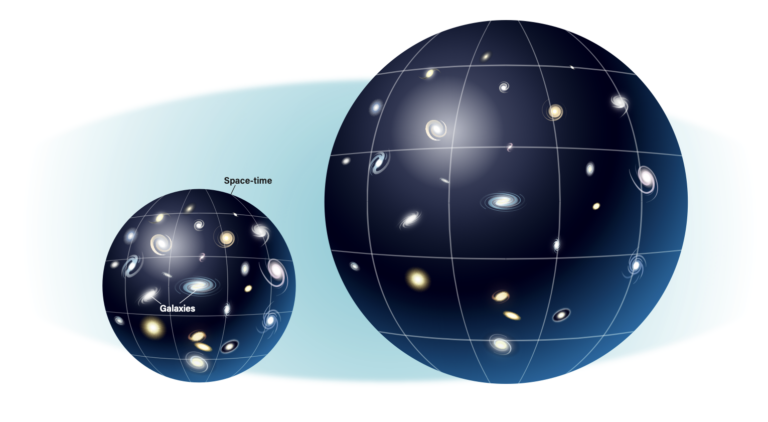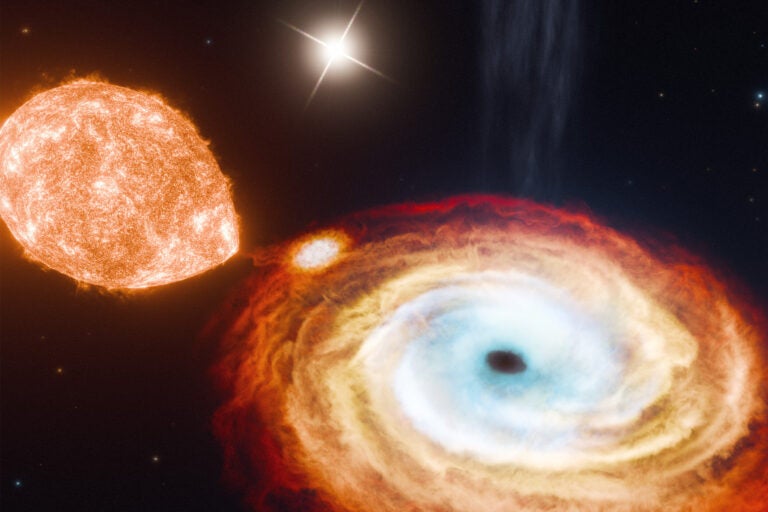A new type of energy that might have dominated the early universe was suggested and analyzed at the meeting of the American Astronomical Society. Dubbed “ultralight”, the energy type is hypothesized to be different from every other type of known energy, including normal matter, radiations such as light, and even the unusual dark energy that is now thought to pervade the universe. Ultralight energy is not thought to be prevalent in today’s universe, as the expansion of the universe would have diluted it.
“Ultralight energy fits right in to Einstein’s General Theory of Relativity,” said Robert Nemiroff, the paper’s author and a professor of physics at Michigan Technological University. “The equations that explain how the universe expands, called the Friedmann Equations, have a natural place for ultralight energy species.”
“In some sense, ultralight is the opposite of dark energy,” Nemiroff says. Stable dark energy, such as the cosmological constant, grows more important in the universe since it does not dilute as fast as normal matter. Stable ultralight, on the other hand, dilutes with time so fast that matter will eventually dominate over it.
Nemiroff’s paper places a limit on the present abundance of some forms of ultralight. Nemiroff noted that early in the universe, the nuclei of elements formed in a way that is understood without the dominating presence of ultralight. Ultralight might have been dominant previously, but that limit, extrapolated to the present day, indicates that ultralight composes less than one hundred billionth of the energy density of normal matter today, Nemiroff reports.
Ultralight energy might even have relatively tame physical properties, notes Nemiroff. Physicists wonder if phantom energy, a completely different form of previously hypothesized energy type that grows as the universe expands, is even physically possible. Phantom energy would not only have an intrinsic sound speed that is imaginary, but a sound speed with a magnitude greater than the speed of light. The species of ultralight that dilutes as the fifth power of the universe scale factor would not only have a positive definite sound speed but that sound speed would be less than the speed of light.
In cosmology, energy typically dissipates as the universe expands. Normal matter that includes atoms and molecules rarefies in a very specific way as the universe expands. Geometrically, normal matter and dark matter dilute in every spatial dimension, so that they dissipate as the third power of the spatial scale of the universe.
The best known energy specie outside of normal matter is radiation, an example of which is common light. Radiation dilutes even faster than matter as the universe expands — as the fourth power of the spatial scale of the universe.
Other unusual energy species include the “cosmological constant,” a proposed interpretation of dark energy which does not dilute at all as the universe expands, domain walls, which dilute as a single factor of the universe scale factor, and cosmic strings, which dilute as the second power of the universe scale factor. “Ultralight is none of those,” says Nemiroff.
Ultralight, as hypothesized, dissipates as a higher power than four, the power for radiation. A particularly interesting form of ultralight dilutes exactly as the fifth power of the universe scale factor. Therefore, one might consider this ultralight as the “fifth energy specie,” says Nemiroff.
“In some sense, ultralight is the opposite of dark energy,” Nemiroff says. Stable dark energy, such as the cosmological constant, grows more important in the universe since it does not dilute as fast as normal matter. Stable ultralight, on the other hand, dilutes with time so fast that matter will eventually dominate over it.
The paper presented at the meeting places a limit on the present abundance of some forms of ultralight. Nemiroff noted that early in the universe, the nuclei of elements formed in a way that is understood without the dominating presence of ultralight. Ultralight might have been dominant previously, but that limit, extrapolated to the present day, indicates that ultralight composes less than one hundred billionth of the energy density of normal matter today, Nemiroff reports.
Ultralight energy might even have relatively tame physical properties, notes Nemiroff. Physicists wonder if phantom energy, a completely different form of previously hypothesized energy type that grows as the universe expands, is even physically possible. Phantom energy would not only have an intrinsic sound speed that is imaginary, but a sound speed with a magnitude greater than the speed of light. The species of ultralight that dilutes as the fifth power of the universe scale factor would not only have a positive definite sound speed but that sound speed would be less than the speed of light.
“It’s fun to consider ultralight, not only because it is so strange, but because it helps illuminate how different other energy species are from common matter,” says Nemiroff. Ultralight, for example, is the most gravitationally attractive energy species yet hypothesized. It is well known that dark energy and domain walls are both gravitationally repulsive. If a person was to go up to a domain wall, for example, that person would actually be gravitationally repulsed from it. Radiation, on the other hand, is more gravitationally attractive than matter. Ultralight, were it to exist, says Nemiroff, would be even more gravitationally attractive than radiation.

